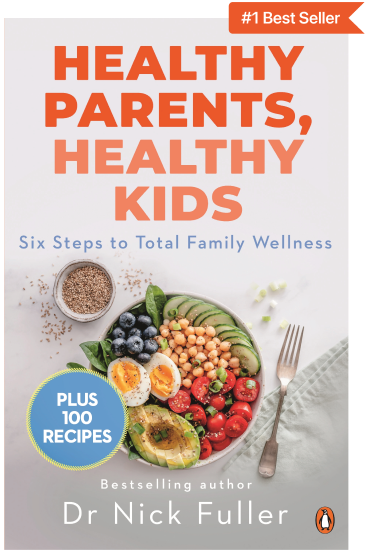Why Toddlers Refuse Meat (And What You Can Try About It)

Dr Nick Fuller
Leading Obesity Expert at the University of Sydney and founder of Interval Weight Loss.

Plenty of parents are left scratching their heads when their little one, who once happily munched on chicken nuggets or bolognese, starts rejecting anything that even smells like meat. No need to panic: it’s actually pretty common. Research shows that food neophobia (the fear of new or unfamiliar foods) peaks between the ages two and six, often affecting foods with strong textures or tastes like meat. Add to that the natural dip in appetite that happens after infancy, and you’ve got the perfect storm for picky eating.
But here’s the catch: meat is a major source of iron, zinc, protein, and B12, which are nutrients toddlers need for healthy brain development, muscle growth and energy. So when meat’s off the menu, it can impact everything from their immune system to sleep quality.
So, why are they refusing it? And more importantly, how can you reintroduce it without the nightly dinner standoff? Let’s break down the most common reasons, what it might mean for their nutrition, and some clever, low-stress ways to help your tiny food critic warm up to meat again.
Help Your Toddler Thrive—Even Without Meat on the Plate
If your child refuses meat, you’re not alone, and you’re not stuck. Healthy Parents, Healthy Kids by Dr Nick Fuller is full of practical, science-backed strategies to help you navigate picky eating with confidence. Whether your toddler is skipping steak or ignoring chicken, this book shows you how to fill the nutrient gaps and support their energy, focus, and healthy growth without the daily mealtime battles.
Grab your copy of Healthy Parents, Healthy Kids today and feel good about what’s on their plate.
6 Reasons Why Toddlers Refuse Meat
Before you blame yourself (or the recipe), know this: there are several totally normal reasons toddlers turn their noses up at meat. Understanding what’s really behind the refusal can help you respond with patience, not pressure.
Texture Trouble
Toddlers are tiny humans with big opinions, especially about textures. Meat can be chewy, stringy, or dry depending on how it's cooked, and that’s a hard no from many little ones. Studies have shown that children between the ages of 3 and 6 are more likely to reject foods with inconsistent textures, especially those containing particles, due to heightened sensory preferences during this stage.
Taste Preferences
Some meats, like beef or lamb, have strong flavours that toddlers may not be used to. Kids are born with more taste buds than adults, making them super sensitive to bitterness or ‘gamey’ flavours. One study found that early taste experiences significantly shape long-term food preferences. So if meat hasn’t been introduced gently, rejection might be expected.
Teething or Mouth Pain
If your child is teething or has sore gums, chewing meat might feel like munching on bricks. Even toddlers with molars can struggle if the meat is too tough. According to the Australian Dental Association, teething often starts around 6 months, and while the discomfort varies from child to child, it’s a normal part of development. Most children have all 20 baby (deciduous) teeth by the age of 3.
Short Attention Span
Toddlers are famously distracted by… well, everything. Sitting down to chew through a meat-heavy meal might be too much of a commitment. Quick bites like pasta, yoghurt or fruit are just easier and more appealing for a busy tot on the move.
Independence Phase
Ah, the classic ‘I do it myself!’ stage. Around 18–36 months, toddlers start asserting independence, including in their food choices. Saying ‘no’ to meat isn’t personal. It’s just part of flexing those decision-making muscles.
Too Much Milk or Snacks
If your toddler’s filling up on milk or snacks throughout the day, they may not feel hungry enough to eat a proper meal. Consuming too much milk daily may result in missing out on important nutrients from solid foods, including protein and iron from meat.
What Happens When Kids Refuse Meat
A short-term meat boycott isn’t the end of the world, but if it drags on, you might notice a few issues:
- Risk of low protein intake
Protein is essential for growth, muscle development, and immune function. While toddlers can get protein from other sources, meat is one of the most nutrient-dense options. - Risk of iron deficiency
Red meat is one of the best sources of heme iron, which is absorbed more easily than the non-heme iron in plants. Iron deficiency can lead to tiredness, pale skin and developmental delays. A 2021 study found nearly 25% of Aussie toddlers have inadequate iron intake. - Possible vitamin B12 deficiency
B12 is critical for nerve function and is mostly found in animal products. Deficiency can lead to fatigue and delays in brain development. - Slower physical growth
Protein, iron and zinc (all abundant in meat) play key roles in growth. Persistent refusal of meat, without adequate replacements, can lead to growth slowdowns. - Reduced energy levels
Iron and protein support energy metabolism. Without them, kids may seem more lethargic or sleepy than usual. - Weaker immune response
Zinc and B12 help keep the immune system strong. Less meat could mean more colds and sniffles. - Poor concentration or fatigue
Iron-deficiency anaemia is linked to cognitive delays and trouble focusing in toddlers. - Increased risk of picky eating habits
The longer toddlers get away with skipping certain foods, the more likely these habits will stick around. Early and repeated exposure is key to broadening their palate, according to child nutrition experts.
Meat for Toddlers? Try These Fuss-Free Tricks
So, what now? Don't worry. You don’t have to bribe them with chocolate or hide chicken in pancakes (unless you’re really desperate). Try these simple and toddler-approved strategies:
Change the Texture
Shred it, mince it, slow-cook it. Do whatever it takes to make it soft and easy to chew. Tender pulled beef or chicken mixed into rice or pasta can be a game-changer. Meatballs and rissoles are also toddler favourites.
Use Mild Spices and Sauces
Meat doesn’t have to be bland, but it also shouldn’t burn their tiny tongues. A light tomato sauce, a touch of coconut milk, or a sprinkle of cinnamon (yes, really!) can make meat more appealing. Flavour = familiarity, and familiarity = acceptance.
Blend with Favourite Foods
Add meat to food they already love, like spaghetti, macaroni, fried rice or even veggie fritters. Toddlers are more likely to accept new ingredients when mixed with foods they already enjoy. This is called food chaining.
Offer Meat Alternatives
If meat is totally off the table for now, try iron-rich alternatives like eggs, tofu, lentils, beans, and fortified cereals. Just remember that plant-based sources often need a vitamin C booster (like tomatoes or oranges) to help with iron absorption.
Make Meals Fun
Use cookie cutters to shape meat slices or turn meals into stories like ‘The broccoli forest needs chicken knights!’. Toddlers are imaginative. Use that to your advantage.
Watch the Timing
Serve meat when your child is genuinely hungry and not after a bottle of milk or a banana. Lunchtime is often better than dinner, when they’re tired and cranky. And keep portions small to avoid overwhelm.
Final Thoughts
Toddler meat refusal is frustrating, but it’s usually just a phase. With a bit of creativity, patience and a few tricks up your sleeve, you can help your child build a positive relationship with meat (or its healthy alternatives).
Keep offering, stay calm, and remember: you’re not failing. You're just parenting a tiny human with a very loud opinion.
Still struggling? Explore more expert tips on feeding fussy eaters at Feeding Fussy Kids — perfect if you're concerned about nutrients or your child's growth.
Stay informed with fresh tips, expert guidance, unique deals, and tailored support!
Meet Dr Nick Fuller
My Story
As a father, I know first-hand that raising healthy and happy children is tricky. Children are fussy, particularly at the end of the day when they are shattered. We also live in a society where companies seek to profit from what we feed our kids; incorrect and damaging advice is pushed on us and marketed towards our children, and we have no time.
But with these recipes and resources, you and your children can enjoy simple and well-founded food and lifestyle choices for lifelong health.

About Dr Nick Fuller
Dr Nick Fuller is the founder of Interval Weight Loss and is a leading obesity expert at the University of Sydney with a Ph.D. in Obesity Treatment. Dr Fuller is also the author of three best-selling books and his work been published in top ranked journals in the medical field, including JAMA, Lancet and American Journal of Clinical Nutrition.
